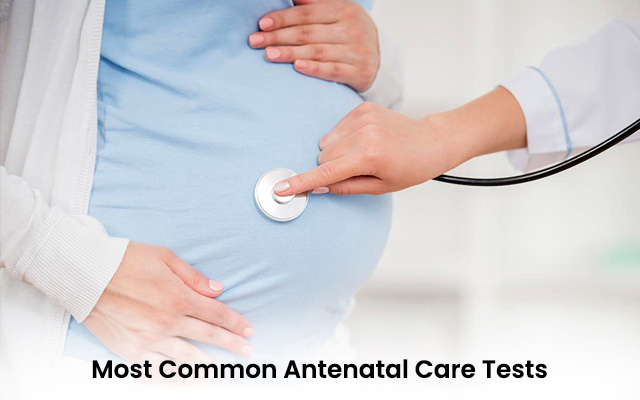May 27, 2025 | by Admin

One of the most important parts of a pregnancy journey is antenatal care- the regular check-ups and tests that help make sure both mom and baby are healthy.
If you are expecting or planning to be, here is a quick guide to the most common antenatal tests and why they matter.
Some of the most common antenatal care tests and the purpose they serve are mentioned below.
If you suspect you are pregnant, the first step is to confirm it:
It confirms the pregnancy and helps doctors check if everything is normal.
Checks for fetal heartbeat and accurate pregnancy dating.
This is done between 11–13.6 weeks (ideally at 12 weeks) and offers 90% accuracy.
An invasive test to confirm chromosomal/genetic conditions.
Screening test for chromosomal abnormalities
Quadruple test accuracy: 80%
Triple test accuracy: 60%
An invasive test that samples amniotic fluid to confirm suspected genetic issues.
Highly accurate blood test for genetic screening. It offers 99% accuracy. If any abnormality is detected, CVS or Amniocentesis may be advised for confirmation.
Measures cervical length to assess the risk of preterm birth.
Detailed ultrasound to detect structural abnormalities in the baby.
Focuses on detecting any congenital heart defects.
Its done after 26 weeks to track baby’s growth, placental function, and fluid levels.
Check the baby’s position in preparation for delivery.
To know more about these tests, reach out to Petals Health Clinic, our woman and child care clinic in Kolkata.
Each of these antenatal tests is designed to monitor a specific aspect of your pregnancy. From confirming early viability to screening for abnormalities and preparing for safe delivery, these scans and tests ensure timely intervention.
If you are pregnant or planning to conceive, book your check-up at Petals Health Clinic, a reputed antenatal care clinic in Kolkata, because your journey to motherhood deserves expert care.